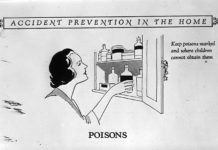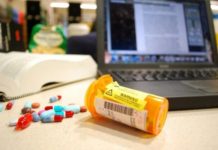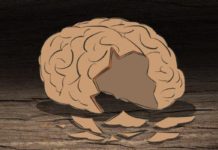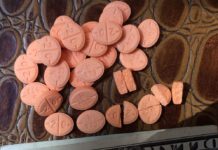The Connection Between Sleep, Exercise, Screen Time and Cognition in Childhood
Can current guidelines for sleep, exercise, and screen time in childhood be linked to positive cognitive outcomes?
Rates of ADHD Diagnosis and Prescription of Stimulants Continue to Rise
Two new articles find that rates of ADHD diagnosis and stimulant prescription continue to rise all over the world.
Improving the Efficacy of Mindfulness in Schools
New research examines factors that make mindfulness interventions in school most effective for adolescent’s mental health outcomes.
Large Increase in Poison Control Calls for Children Taking ADHD Drugs
New data shows that calls to US poison control centers have increased significantly for children taking stimulant ADHD drugs.
Researchers Can’t Predict Whether Childhood ADHD Will Impact Adult Functioning
New research has found that a childhood ADHD diagnosis is not predictive of adult functioning in boys.
Stimulant Drugs Have Adverse Effects on Cognitive Functioning in Healthy Students
Study of students without an ADHD diagnosis finds that stimulants (Adderall) have little impact on cognitive performance.
Poor and Foster Care Children More Likely to be Diagnosed and Treated with Psychiatric...
Study details Medicaid-insured birth cohort’s exposure to psychiatric medications and mental health services.
Despite the Evidence, Overprescription of Stimulants Continues
A new study finds that stimulant prescribing rates to children continue to rise despite the well-established evidence documenting overdiagnosis of ADHD and overprescription of stimulants.
Experts Question the Benefits of Brain Imaging Research for OCD
Two experts—a leading neuroscientist studying OCD, and a psychiatrist specializing in OCD treatment—question whether expensive brain imaging research has added anything to the treatment of OCD.
Time for a Paradigm Shift in School Psychology Interventions
Why do ineffective classification and intervention processes linger in school psychology, and what’s the alternative?
ADHD: Disempowerment By Diagnosis
Giving a diagnosis of ADHD can profoundly disempower students and lead to what psychologists call “learned helplessness.” Isn’t it time for those of us in education to reclaim our profession? Who are the teaching and learning experts? Doctors? Drug companies? We are! And if we don’t stand up—for our students—against disempowering diagnoses and harmful drugs, who will?
Outdoor Education Tied to Psychological and Academic Benefits
How the satisfaction of basic psychological needs (BPN) in outdoor education environments can peak student interest and boost intrinsic motivation.
ADHD More Severe in Children Exposed to Pollution and Economic Deprivation
ADHD behaviors were linked to the presence of both high levels of pollutants and persistent economic deprivation at birth and through childhood.
Race and Class Affect Teacher Perceptions of ADHD Medication Use
Study uncovers teachers’ attitudes surrounding ADHD medication use and examines the influence of race and social class on teacher beliefs.
The Scientism of Attention Deficit Hyperactivity Disorder (ADHD)
Calling ADHD a diagnosis, i.e., something with the capacity to explain the behaviours that it describes, is like saying the headache is causing the pain in my head or the inattention is caused by inattention. Scientism has turned ADHD from a vague, difficult to pin down concept into a fact of culture masquerading as a fact of nature.
CDC Reports Increased Psychostimulant Prescriptions in Women of Reproductive Age
Psychostimulant prescriptions have increased by 344% (from 2003 to 2015) for women of reproductive age (15-44 years old).
Problem Behaviors are Medicalized in White Children and Criminalized in Black Children
Race often determines whether school punishment or therapy and drugs will be used to address children’s problem behaviors.
Micronutrients for ADHD Symptoms in Children
Over and over again, we have shown that additional nutrients positively affect behaviour and mental states. This research offers further evidence that children with ADHD, mood dysregulation and symptoms of aggression should be given the opportunity to try micronutrient treatment FIRST.
Critical Influence of Nutrition on Psychosocial Wellbeing in Childhood
The bidirectional relationship between diet and nutrition and social, emotional, and educational factors among European youth.
Children Diagnosed with ADHD Younger are More Likely to get Multiple Medications
New research demonstrates that children diagnosed with ADHD at younger ages are more likely than those diagnosed later to receive multiple medications within five years of their diagnosis.
Warning to Parents: Psychiatry is How Kids Get High and Die in the USA
Street drug dealers and stimulant-peddling doctors both get clients high and addicted for profit. So there is really no difference between what they do except that doctors are more ‘successful’ at it, since they enjoy many advantages over illicit dealers and can get away with doing it legally.
Study Examines Overdiagnosis of Mental Health Disorders in Childhood
Are diagnoses of mental disorders among children and adolescents in developed countries disproportionate to disease prevalence trends?
Researchers Confirm That Relative Age Impacts ADHD Diagnosis
The youngest children in a class are more likely to receive an ADHD diagnosis than their peers.
School Culture May Contribute to Overdiagnosis, Study Finds
Officials at a school that was more focused on ADHD diagnoses described children’s behavior in terms of individual illnesses, taking children out of the context of their social interactions, race, gender, and socioeconomic status.
Stimulants: The Long View
When the ADHD literature speaks of scattered attention, it uses terms with historical resonance. Ever since the Puritans, reformers have attached high importance to the regulation of attention. But the standard treatment of ADHD is designed for immediate, not eventual, benefits. It conflicts with its own rationale.

































